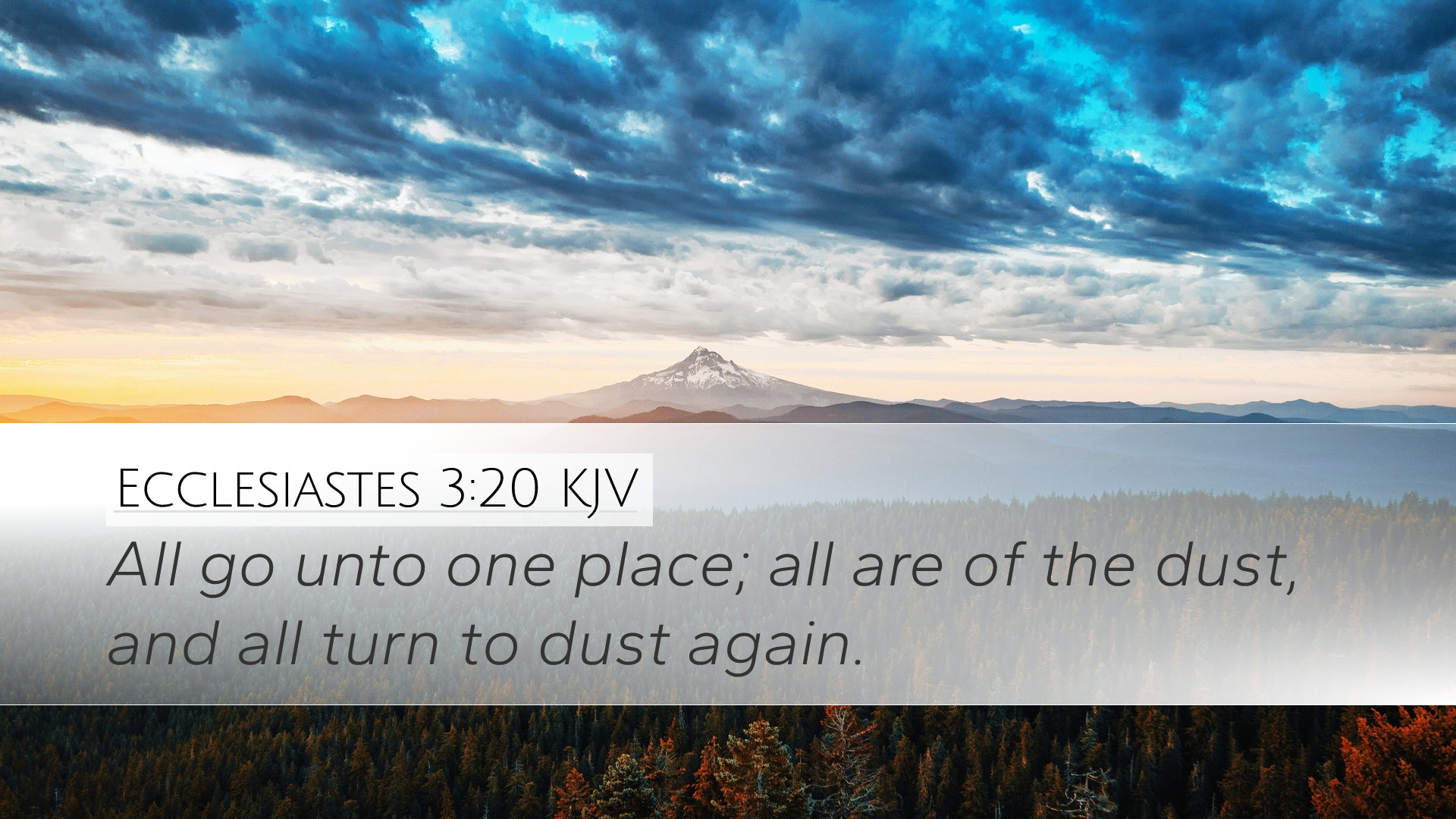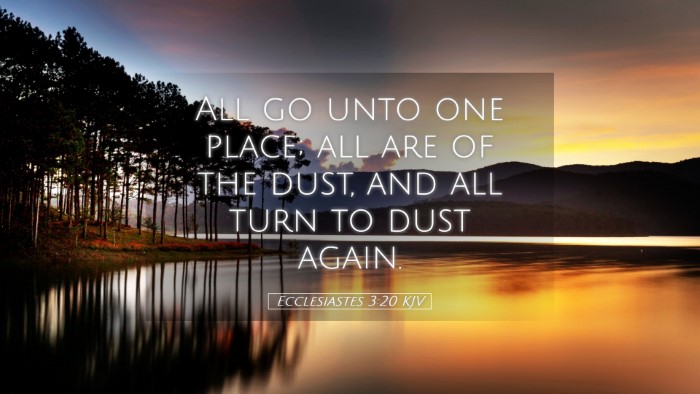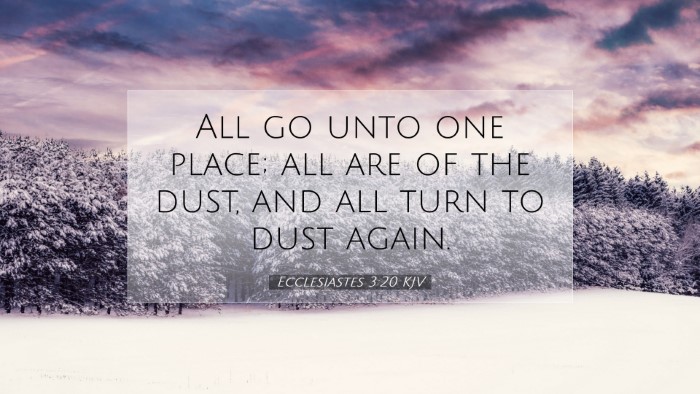Old Testament
Genesis Exodus Leviticus Numbers Deuteronomy Joshua Judges Ruth 1 Samuel 2 Samuel 1 Kings 2 Kings 1 Chronicles 2 Chronicles Ezra Nehemiah Esther Job Psalms Proverbs Ecclesiastes Song of Solomon Isaiah Jeremiah Lamentations Ezekiel Daniel Hosea Joel Amos Obadiah Jonah Micah Nahum Habakkuk Zephaniah Haggai Zechariah MalachiVerse
Ecclesiastes 3:1 Ecclesiastes 3:2 Ecclesiastes 3:3 Ecclesiastes 3:4 Ecclesiastes 3:5 Ecclesiastes 3:6 Ecclesiastes 3:7 Ecclesiastes 3:8 Ecclesiastes 3:9 Ecclesiastes 3:10 Ecclesiastes 3:11 Ecclesiastes 3:12 Ecclesiastes 3:13 Ecclesiastes 3:14 Ecclesiastes 3:15 Ecclesiastes 3:16 Ecclesiastes 3:17 Ecclesiastes 3:18 Ecclesiastes 3:19 Ecclesiastes 3:20 Ecclesiastes 3:21 Ecclesiastes 3:22

